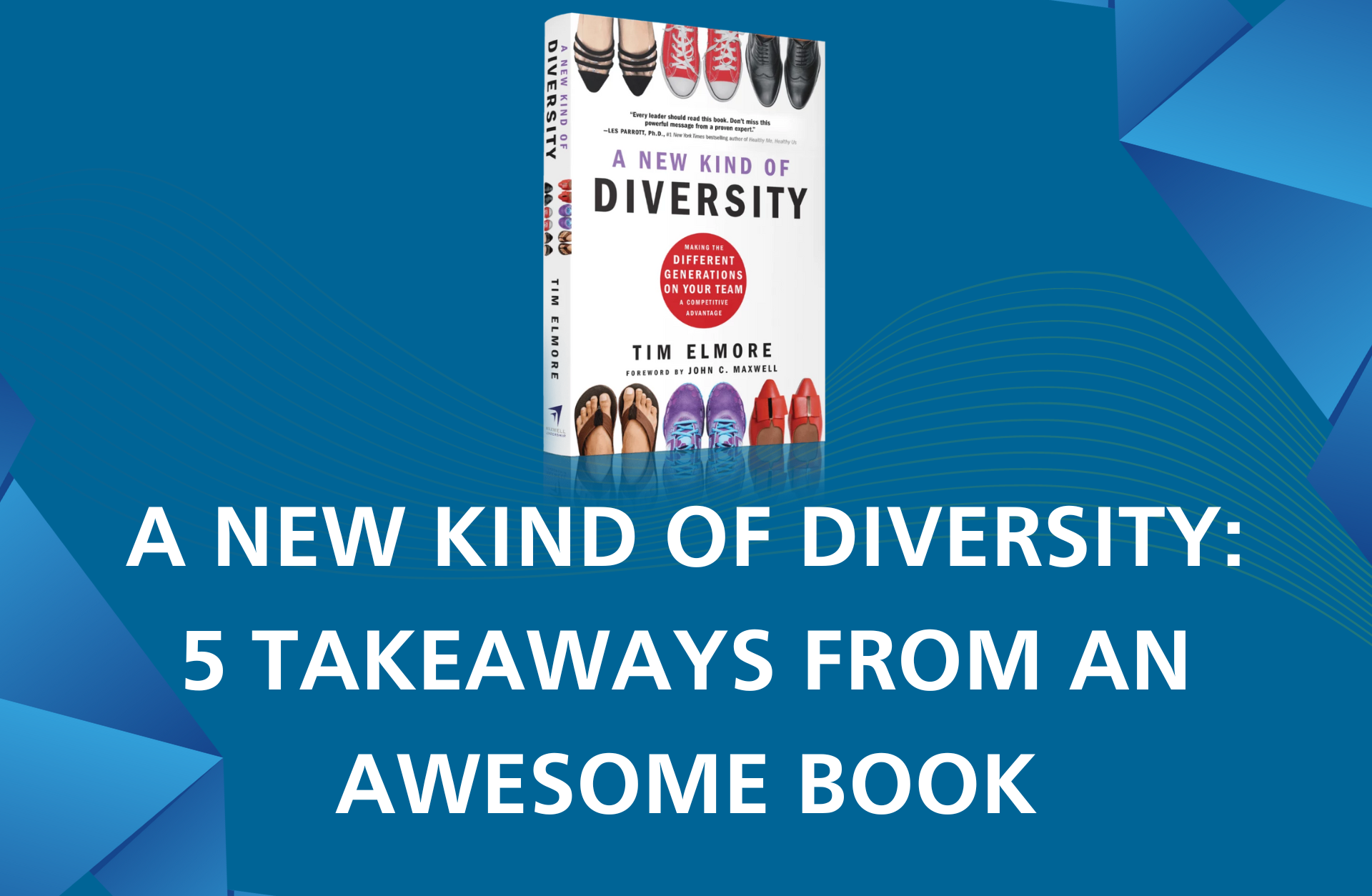
Written By: Jennifer Karpus-Romain | Feb 15, 2023 8:15:00 AM
Have you read “A New Kind of Diversity” by Tim Elmore? It’s a really interesting take on the varying generations currently in the workplace, how to understand who they are, and how to engage with them. This is especially interesting when we factor in the future.
There is just an overflow of fantastic content in this book, but here are five takeaways:
For many professionals graduating college and entering the job market today, the position they are applying for right now is their first job ever. Their parents wanted them to fully focus on their education, so that’s what they did.
This explains a few things:
This made me ask myself: What skills did I learn in all the jobs I had before I entered the job market after college? It's a substantial amount of learning how to work with people and alone, customer service, and more. If I didn't have these experiences, my preparedness for the workplace would be much different. We, as leaders, need to process and adapt to this, which takes me to #2.
Have you ever asked someone younger than you how they’d signal they need to make a phone call?
Older generations often make a fist of some sort like they are picking up a phone that is connected to the wall.
Millennials will make a fist, but with their pinky finger and thumb sticking out because they are picking up a wireless phone.
Generation Z is more likely to put a palm to their ear because they are used to a cell phone.
Any generation after that will probably blink at you because they use their phones for everything besides making phone calls.
In this book, Elmore tells a story about a dad asking his daughter to finish sending a letter in the mail. The daughter needed to look up a YouTube video because she was not sure where the stamp or address went.
We shouldn’t assume that the experiences we had in our own childhoods, the things that shape us, is universal to everyone.
Generations entering the workplace grew up in a time where scandals are broadcasted across the news regularly for people who were in powerful positions who took advantage of their companies, employees, and market.
What does this mean for you? Titles do not equal trust. You must earn trust, not demand it. Younger generations do not trust a leader just because they are in the role. They also want and believe that their voices hold weight too, not just the C-Suite.
If you have a cavity, the dentist will drill down and clean it out, and then try to fill the hole to seal it off as soon as possible. Why? If you leave it, decay can come back. Pain will become more apparent. The things you are trying to fix will just get worse.
Whether you are trying to tackle generational differences in the workplace or any other “Elephant in the Room” if you just drill a little bit and then leave it up, things will fester more.
Generational differences will exist. The tension is there. You cannot FIX it, but you can learn to embrace it and work on it, but not if you just leave it sitting.
When was the last time you did something new? Something that is totally different from what you are doing now? Have you learned a new instrument or language? Jumped into a new hobby like woodworking or archery? When we are younger, we are constantly trying to new things. Elmore relates this to concrete. By the time we are in our adulthood, we aren’t trying new things all the time.
Our brains have laid down the foundation and the concrete is dry. We can get a jack hammer, really disrupt the hardened slab and lay something new down. Yet, if we never stop learning and adapting, if we don’t let our mental pathways harden, we will be more adaptable to new trends and insights from younger generations entering the workplace.
Conclusion
Diversity means a lot of things to a lot of people, but this book breaks down generational differences, the tensions that lie between them and how we can all relate a little bit more to each other. Toward the end of the book, Elmore talks a lot about social and emotional intelligence and how we all can improve these skill sets to create better workplaces. This starts with self-awareness, understanding our own strengths and limitations, but creating a growth mindset for ourselves.
Tags: Business, Talent Management, Communications, Leadership